
Entertainment
-
 DiscoverEU marks 40 years of Schengen with 40,000 free travel passes for young Europeans
The European Commission is celebrating the 40th anniversary of the Schengen Area by offering 40,000 young Europeans the chance to explore the continent through DiscoverEU, part of the31 October 2025Read More...
DiscoverEU marks 40 years of Schengen with 40,000 free travel passes for young Europeans
The European Commission is celebrating the 40th anniversary of the Schengen Area by offering 40,000 young Europeans the chance to explore the continent through DiscoverEU, part of the31 October 2025Read More... -
 Brussels universities to award honorary doctorates to Stromae, Lize Spit, and Amélie Nothomb
The Vrije Universiteit Brussel (VUB) announced on Monday that Stromae, Lize Spit, Amélie Nothomb, François Schuiten, and Ever Meulen will receive joint honorary doctorates from VUB and27 October 2025Read More...
Brussels universities to award honorary doctorates to Stromae, Lize Spit, and Amélie Nothomb
The Vrije Universiteit Brussel (VUB) announced on Monday that Stromae, Lize Spit, Amélie Nothomb, François Schuiten, and Ever Meulen will receive joint honorary doctorates from VUB and27 October 2025Read More... -
 Stolen Renaissance masterpiece returns to Italy after 52 years
After more than half a century, a stolen Renaissance painting has finally returned home to Italy. *Madonna with Child*, a tempera-on-wood masterpiece by Venetian painter Antonio Solario,31 July 2025Read More...
Stolen Renaissance masterpiece returns to Italy after 52 years
After more than half a century, a stolen Renaissance painting has finally returned home to Italy. *Madonna with Child*, a tempera-on-wood masterpiece by Venetian painter Antonio Solario,31 July 2025Read More... -
 Belgian seaside resorts: highlights of royal De Panne
While Ostend is often dubbed the queen of Belgium’s seaside resorts, the country’s coastline offers many other gems worth discovering. In this series, Belga English explores four distinctive20 July 2025Read More...
Belgian seaside resorts: highlights of royal De Panne
While Ostend is often dubbed the queen of Belgium’s seaside resorts, the country’s coastline offers many other gems worth discovering. In this series, Belga English explores four distinctive20 July 2025Read More... -
 Louis Vuitton named suspect in Dutch money laundering probe
Luxury fashion house Louis Vuitton has been named a suspect in a Dutch money laundering investigation, according to the Dutch Public Prosecution Service (OM). The OM alleges that18 July 2025Read More...
Louis Vuitton named suspect in Dutch money laundering probe
Luxury fashion house Louis Vuitton has been named a suspect in a Dutch money laundering investigation, according to the Dutch Public Prosecution Service (OM). The OM alleges that18 July 2025Read More... -
 Brussels tops global rankings for international meetings as tourism soars to new heights
Brussels has once again secured its position as the world’s top city for international meetings, according to the latest annual report from the Union of International Associations (UIA).26 June 2025Read More...
Brussels tops global rankings for international meetings as tourism soars to new heights
Brussels has once again secured its position as the world’s top city for international meetings, according to the latest annual report from the Union of International Associations (UIA).26 June 2025Read More... -
 Coffee prices keep climbing in Czech establishments
The cost of a cup of coffee in Czech restaurants and cafés has increased by 4% over the past year, now averaging CZK 57.80, according to data from the Dotykačka point-of-sale system.15 June 2025Read More...
Coffee prices keep climbing in Czech establishments
The cost of a cup of coffee in Czech restaurants and cafés has increased by 4% over the past year, now averaging CZK 57.80, according to data from the Dotykačka point-of-sale system.15 June 2025Read More...
Politics
-
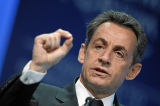 France’s former President Sarkozy to begin appeal trial over Libyan Funding allegations
Former French President Nicolas Sarkozy is set to appear in a Paris court on March 16 for the start of his appeal trial over allegations of illegal campaignRead More...
France’s former President Sarkozy to begin appeal trial over Libyan Funding allegations
Former French President Nicolas Sarkozy is set to appear in a Paris court on March 16 for the start of his appeal trial over allegations of illegal campaignRead More... -
 French parliament poised to halt Macron’s pension reform amid budget Turmoil
French lawmakers are expected to vote Wednesday to suspend President Emmanuel Macron’s controversial pension reform, as the government battles to push next year’s budget through aRead More...
French parliament poised to halt Macron’s pension reform amid budget Turmoil
French lawmakers are expected to vote Wednesday to suspend President Emmanuel Macron’s controversial pension reform, as the government battles to push next year’s budget through aRead More... -
 Ex-minister Ziobro rejects corruption allegations, labels case political
Former Polish justice minister Zbigniew Ziobro vowed on Saturday to pursue “legal and political” action after parliament voted to lift his immunity, clearing the way for prosecutors to bringRead More...
Ex-minister Ziobro rejects corruption allegations, labels case political
Former Polish justice minister Zbigniew Ziobro vowed on Saturday to pursue “legal and political” action after parliament voted to lift his immunity, clearing the way for prosecutors to bringRead More... -
 Pro-Russian hackers briefly disrupt Belgian Telecom websites in DDoS attack
A wave of DDoS attacks briefly disrupted the websites of Belgian telecom operators Proximus and Scarlet on Wednesday morning, with the pro-Russian hacker group NoName057 claimingRead More...
Pro-Russian hackers briefly disrupt Belgian Telecom websites in DDoS attack
A wave of DDoS attacks briefly disrupted the websites of Belgian telecom operators Proximus and Scarlet on Wednesday morning, with the pro-Russian hacker group NoName057 claimingRead More... -
 French Parliament weighs wealth tax as budget gap looms
France’s government on Friday defended its proposed alternative to a sweeping tax on the ultra-rich, as lawmakers clashed over how to tap the country’s highest fortunes to help close aRead More...
French Parliament weighs wealth tax as budget gap looms
France’s government on Friday defended its proposed alternative to a sweeping tax on the ultra-rich, as lawmakers clashed over how to tap the country’s highest fortunes to help close aRead More...
News
-
 Swiss army has “gone back to sleep,” says departing chief
Switzerland briefly awakened to the urgency of national defence following Russia’s 2022 invasion of Ukraine — but has since drifted back into complacency, outgoingRead More...
Swiss army has “gone back to sleep,” says departing chief
Switzerland briefly awakened to the urgency of national defence following Russia’s 2022 invasion of Ukraine — but has since drifted back into complacency, outgoingRead More... -
 Poland and Germany to seal new defence pact in 2026, leaders announce
Polish Prime Minister Donald Tusk and German Chancellor Friedrich Merz said on Monday that their governments plan to sign a new bilateral defence agreement nextRead More...
Poland and Germany to seal new defence pact in 2026, leaders announce
Polish Prime Minister Donald Tusk and German Chancellor Friedrich Merz said on Monday that their governments plan to sign a new bilateral defence agreement nextRead More... -
 Monegasque Language Committee resumes its work
Following the publication of Sovereign Ordinance No. 11,219 on 7 May 2025, which appointed the members of the Monegasque Language Committee, the group has officially reconvened atRead More...
Monegasque Language Committee resumes its work
Following the publication of Sovereign Ordinance No. 11,219 on 7 May 2025, which appointed the members of the Monegasque Language Committee, the group has officially reconvened atRead More... -
 France arrests four, including two Russian nationals, on espionage suspicions
French authorities have arrested four people — including two Russian nationals — as part of an investigation into suspected espionage conducted on behalf of a foreign state, the ParisRead More...
France arrests four, including two Russian nationals, on espionage suspicions
French authorities have arrested four people — including two Russian nationals — as part of an investigation into suspected espionage conducted on behalf of a foreign state, the ParisRead More... -
 German home prices expected to climb over 3% annually, pressuring affordability for new buyers
German residential property prices are poised to grow by more than 3% a year in the coming years, according to a Reuters poll of property analysts, raising fresh concerns about housingRead More...
German home prices expected to climb over 3% annually, pressuring affordability for new buyers
German residential property prices are poised to grow by more than 3% a year in the coming years, according to a Reuters poll of property analysts, raising fresh concerns about housingRead More... -
 UN convention to review environmental complaint over France’s 2030 Winter Olympics
A United Nations environmental body has agreed to examine a complaint accusing France of violating international transparency and public-participation rules during preparations for the 2030Read More...
UN convention to review environmental complaint over France’s 2030 Winter Olympics
A United Nations environmental body has agreed to examine a complaint accusing France of violating international transparency and public-participation rules during preparations for the 2030Read More... -
 Louvre closes major gallery over structural concerns amid ongoing security scrutiny
The Louvre Museum in Paris has closed one of its key galleries after engineers identified structural weaknesses in parts of the historic building, adding fresh unease to an institution alreadyRead More...
Louvre closes major gallery over structural concerns amid ongoing security scrutiny
The Louvre Museum in Paris has closed one of its key galleries after engineers identified structural weaknesses in parts of the historic building, adding fresh unease to an institution alreadyRead More... -
 EU reaches provisional €192.8 billion budget deal for 2026, boosting research, security and competitiveness
EU lawmakers struck a provisional agreement early Saturday on the bloc’s 2026 budget, securing hundreds of millions in additional funding for research,Read More...
EU reaches provisional €192.8 billion budget deal for 2026, boosting research, security and competitiveness
EU lawmakers struck a provisional agreement early Saturday on the bloc’s 2026 budget, securing hundreds of millions in additional funding for research,Read More... -
 Germany to invest €26.5 billion in soldier equipment and armoured vehicles
Germany is set to channel €26.5 billion into modernising troop gear and expanding its fleet of wheeled armoured vehicles over the next decade, according to a finance ministry document seenRead More...
Germany to invest €26.5 billion in soldier equipment and armoured vehicles
Germany is set to channel €26.5 billion into modernising troop gear and expanding its fleet of wheeled armoured vehicles over the next decade, according to a finance ministry document seenRead More...

Most Read
- Teen held after US woman killed in London stabbings
- Football: Farhad Moshiri adamant Everton deal above board
- Greece hails new post-bailout chapter but concerns remain
- The Kokorev case caused wide discussion in Brussels
- EU accession talks stir debate in Moldova: insights from Gagauzia's leader, Yevgenia Gutsul
Economics
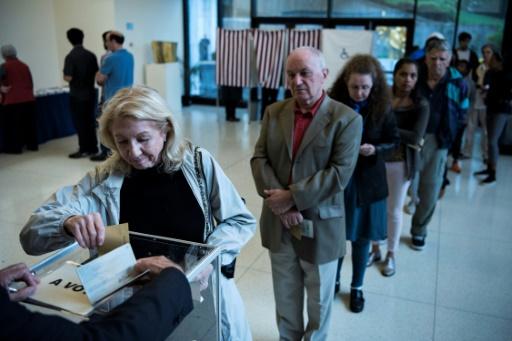
From London to Berlin, Washington to Tel Aviv, French voters lined up at polling stations abroad at the weekend to cast ballots for one of the closest presidential elections in years back home.
Around 1.3 million French people abroad are registered to vote -- representing around two percent of the total electorate.
In London -- often called the sixth biggest French city -- hundreds of people queued up outside the two polling stations well before they opened on Sunday, with some waiting up to two hours to vote.
"In London, we're expecting perhaps 50,000 voters, so it's going to be a busy day," said Edouard De Guitaut, in charge of a polling station at a French school in London's upmarket South Kensington.
Sunday's first round presidential election is being closely watched after Donald Trump's victory in the US election and Britain's shock vote to leave the EU.
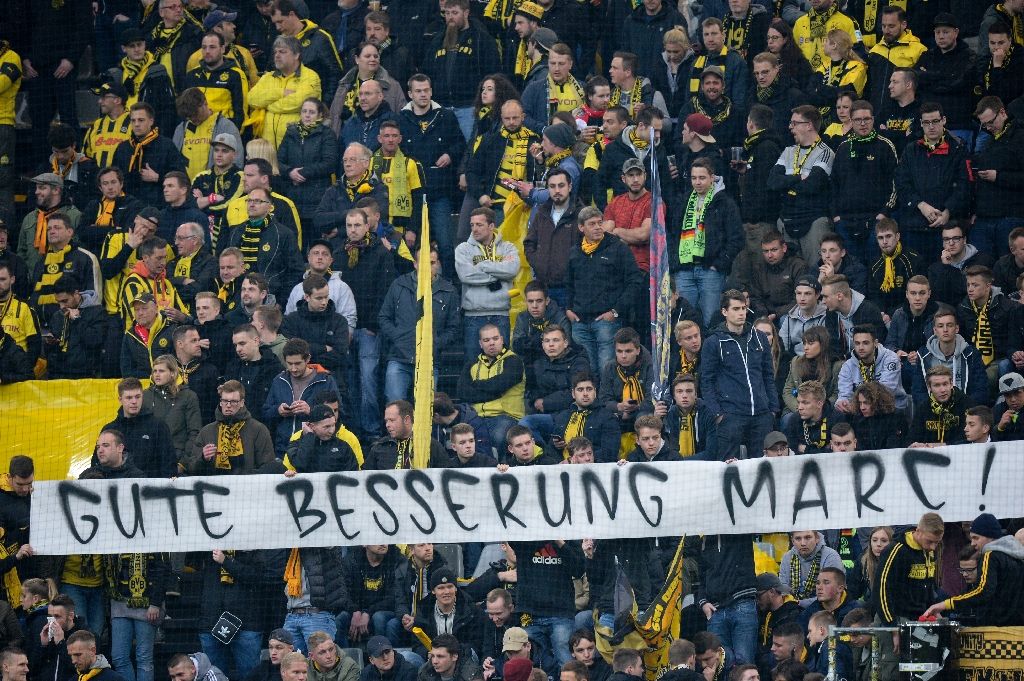
German investigators on Wednesday detained an Islamist suspect over three explosions that rocked Borussia Dortmund's team bus, prosecutors said, confirming that the probe was examining a possible "terrorist link".
The roadside blasts left Dortmund's Spanish international Marc Bartra and a policeman injured, with the bombs "containing metal pieces" detonating minutes after the team bus set off to a planned Champions League game against Monaco on Tuesday night.
The blast had a radius of more than 100 metres (yards), federal prosecutors said, adding it was lucky the toll was not higher.
The match was belatedly held Wednesday, with Monaco claiming a 3-2 win in front of a packed stadium as a defiant Dortmund team vowed it won't "give in to terror".
Security was ratcheted up around Dortmund for the match, as well as in Munich where Bayern Munich were taking on Real Madrid.
"Bartra! Bartra!", chanted supporters just before the quarter-final, first leg tie began in Dortmund, in support of the defender who was hurt by flying glass.
Federal prosecutor's office spokeswoman Frauke Koehler said the probe was examining a possible "terrorist link", after three identical letters were found at the scene.
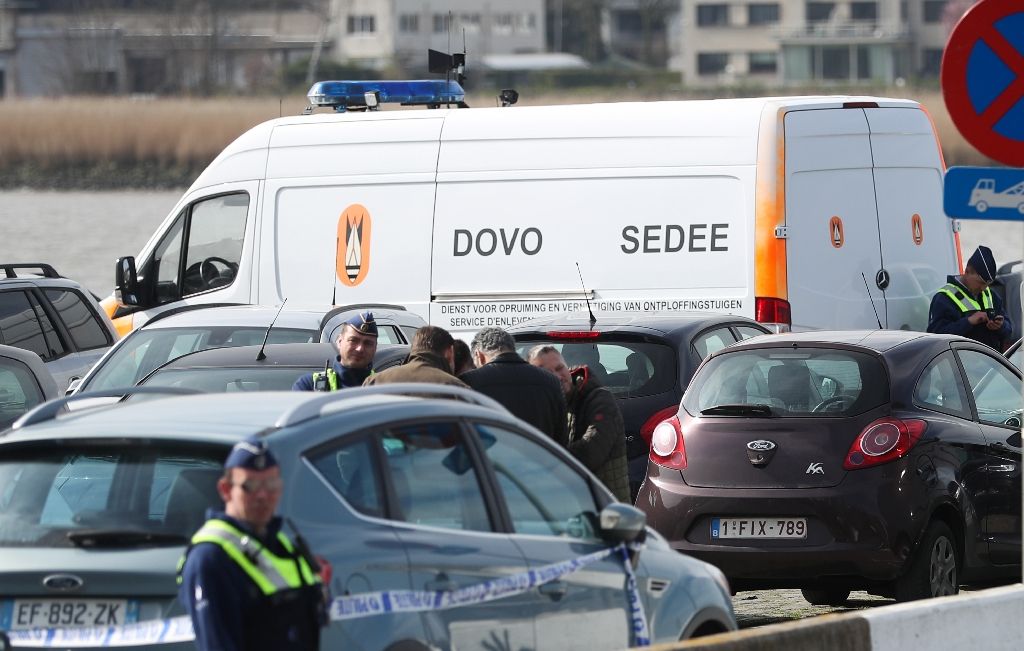
Belgian security forces arrested a man Thursday after he drove into a shopping area at high speed in the port city of Antwerp, officials said.
Authorities found a rifle and bladed weapons in the car after the suspect, identified by prosecutors as 39-year-old Mohamed R., tried to flee and was detained in the northern city.
The man was "under the influence of something" but it was not clear what substance, a source close to the investigation told AFP.
Authorities were not certain if it was an attempted attack and the incident remained under investigation, several Belgian sources added on condition of anonymity.
The Belgian prosecutor's office said the man, identified as 39-year-old Mohamed R., was a French national but a French police source told AFP he was Tunisian legally residing in the French city of Lens near the Belgium border.
"He has an address in Lens and as far as we know at the moment, he is not known for large-scale criminal acts," the source said.
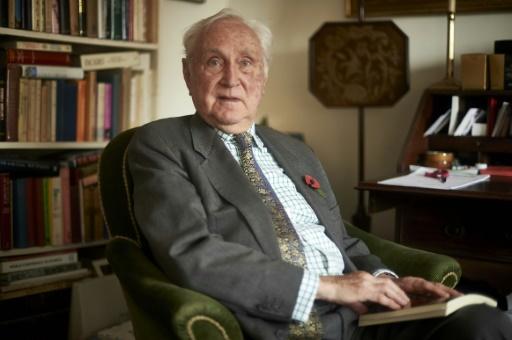
As a Foreign Office diplomat, Crispin Tickell helped Britain join the European Union in 1973. Now 86, he reflects on missed opportunities and his deep disappointment at the Brexit vote.
"I think it's a disaster. I think it's a failure of foreign policy," he told AFP in his book-filled, top-floor flat overlooking London's Regent's Canal.
"British foreign policy has been subjected to the vote of people who know nothing whatsoever about all this, and probably have a sneaking dislike of foreigners."
Tickell was in the British embassy in Paris when France blocked Britain's bid to join what was then the European Economic Community, and was private secretary to the three negotiators who subsequently struck the membership deal.
He disputes the claims by Brexit supporters that Britain had only intended to join a trading bloc when it signed up in 1973, not the more political union that the EU became.
"In the beginning it was obvious we were going in that direction, towards a united states of Europe. But that didn't mean we were going to give up sovereignty," he said.
During the campaign for the June referendum on EU membership, the "Leave" side used the slogan "Take Back Control" to harness public anger over decisions made in Brussels.
But Tickell said the feeling back then was that "we were able to participate in what would be the largest trade bloc in the world, that shared our common values and attitudes".
"We would be far more effective in an age when the Commonwealth was gradually declining in value and Britain was becoming less important," he said.
He added: "Joining the EU, as (then prime minister) Ted Heath understood very well, gave us a much stronger position.
"What we failed to do was to take advantage of it and realise what we could do."
- 'UK never took the EU seriously' -
The current French government has promised to be tough with Britain in the EU exit talks, and back then, it was Paris that twice vetoed London's application to join the bloc.
But Tickell, who spent six years at the Paris embassy and was chief of staff to European Commission president Roy Jenkins in the 1970s, says many in France were keen on British membership as a counterbalance to Germany.
Tickell was present at many of the negotiating meetings, and insists Britain got a good deal.
A major problem, he said, was that "some British leaders never took the subject very seriously".
"I don't think people realised the extent to which we could negotiate what we wanted in the European Union," Tickell said.
As an example, he said Britain should have tried harder to reform the bloc's generous farm subsidies.
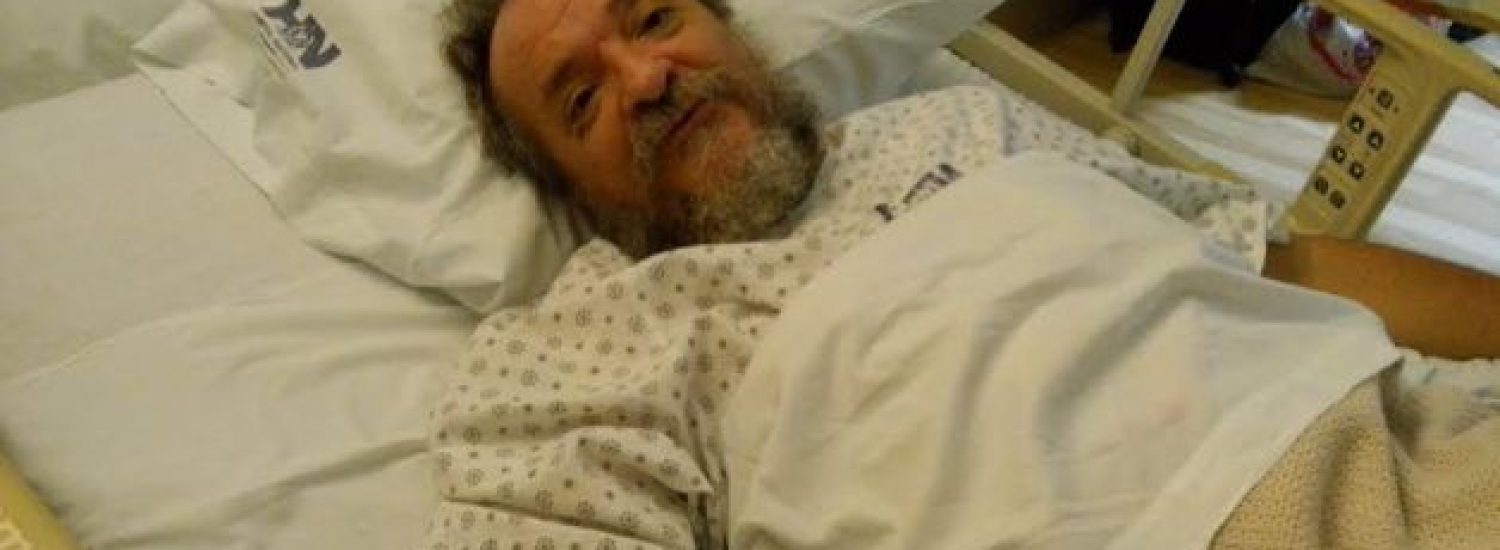
During an interview on aired Spanish National Television (TVE), Mr. Jose Antonio Penichet, the attorney of the Russian Consulate in Las Palmas, raised the question of whether the xenophobic attitude of Las Palmas judiciary is to blame for a flagrantly unjust treatment of the family of Spanish entrepreneur of Russian-Jewish origins, also known as “The Kokorev Case”. Vladimir Kokorev, as well as his wife and son, remain in pre-trial detention in Las Palmas (Spain) on unclear charges and without access to the case file for already over 18 months, with no expectation of a trial or even a formal accusation.
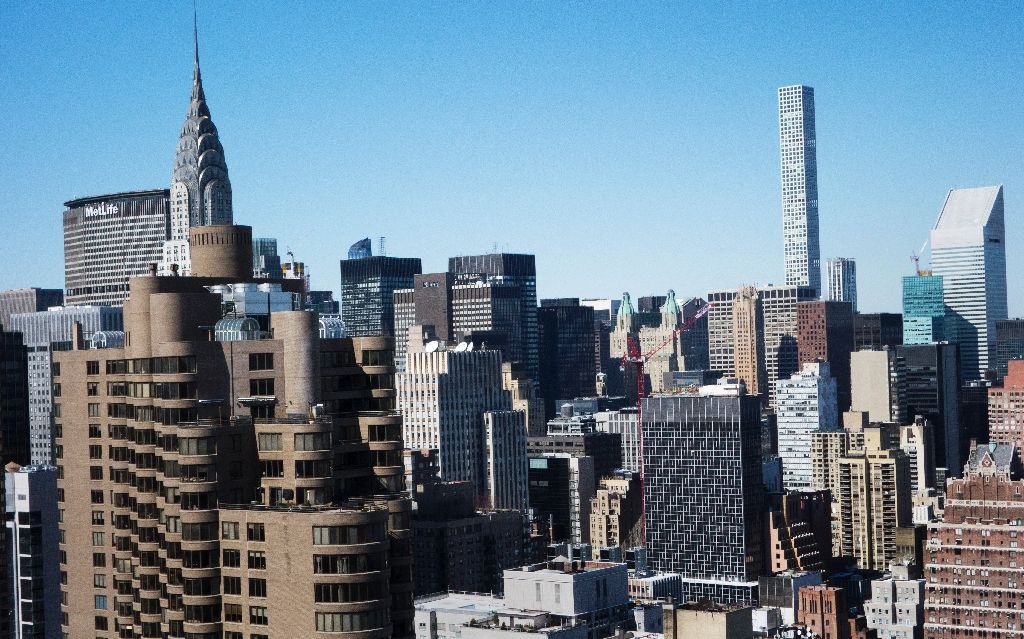
With a skyline crowded with ever-more luxury towers, the construction of another Manhattan skyscraper wouldn't normally be remarkable.
But the American Copper Buildings going up on the East River -- a complex of two towers with 764 apartments, panoramic views and a huge entrance hall with a doorman -- is different.
Planned just after deadly Hurricane Sandy ravaged New York in October 2012 -- sounding another alarm about the mounting effects of climate change -- it was designed with new threats in mind, reflecting how the real estate world is evolving to account for global warming, in contrast to President Donald Trump's moves to roll back environmental protection.
The huge storm killed more than 40 people in New York, paralyzing the US financial capital for days.
JDS, the company developing the American Copper Buildings, bought the land for the project around the same time.
"The whole thing was a lake, we could have toured the site in a canoe," said Simon Koster, a principal at the company.
"We knew something like that would happen again," he added. "So we said, 'How can we make sure that if we lived here, we will not be facing that scenario?' So we let the designers loose."
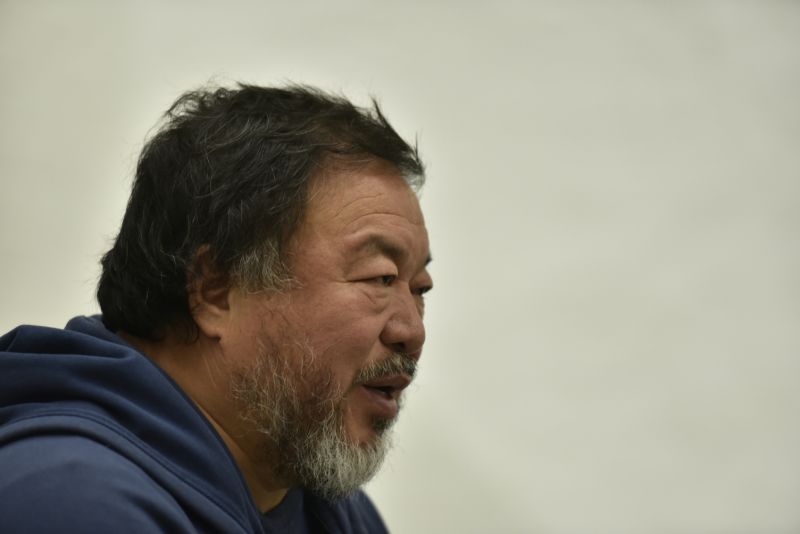
The Chinese activist artist Ai Weiwei will build dozens of fences in New York for an exhibition opening in October that focuses on walls that divide people and mark borders.
A champion of refugees and migrants, Ai is calling his new large-scale conceptual installation "Good Fences Make Good Neighbors."
He took the title from the final line in "Mending Wall," a poem by the 20th-century US poet Robert Frost that reflects on a wall between neighbors.
The artist says he is dismayed by President Donald Trump's policies, including his promise to build a wall along the US southern border with Mexico to keep out undocumented immigrants, along with his attempt to bar entry to the United States by some Muslim-majority citizens.
He intends to transform the metal wire security fence into an artistic symbol in various sites in the New York, a gateway to the United States.
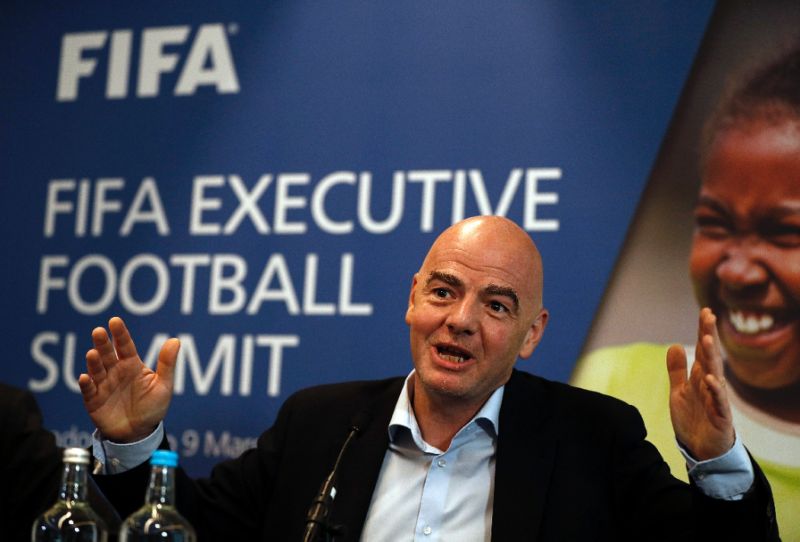
US President Donald Trump's controversial travel ban could make it impossible for his country to host the 2026 World Cup, FIFA president Gianni Infantino warned on Thursday.
The United States is the favourite to stage the expanded 48-team tournament in 2026, either on its own or as part of a joint-bid with neighbours Mexico and Canada.
But with Trump seeking to ban nationals from several Muslim-majority countries, Infantino says the US may not even be in a position to submit a bid.
"Mr Trump is the president of the United States of America and as such of course (I have) huge respect for what he does," Infantino told reporters at London's Heathrow airport.
"He's in charge, together with his government, to take decisions that are best for his country. That's why he has been elected.
"We are now in the process of defining the bid requirements. In the world there are many countries who have bans, travel bans, visa requirements and so on and so forth.
"It's obvious when it comes to FIFA competitions, any team, including the supporters and officials of that team, who qualify for a World Cup need to have access to the country, otherwise there is no World Cup.
"That is obvious. The requirements will be clear. And then each country can make up their decision, whether they want to bid or not based on the requirements."

Playing an increasingly important role in the market economy environment, legal PR is an important and promising trend in public relations. Legal PR experts deal with framing the positions of parties in judicial disputes and with developing of litigation strategies. Attracting of public attention to whatever aspect of the case helps strongly to advocate one’s point and prove its fairness. Currently there are few companies in the European Union that would focus on this area at the intersection of legal profession and PR. We have picked top five companies that specialize in legal PR, operate in Europe and feature a many-year track record.
Byfield Consultancy is a London-based company that focuses on legal PR and takes an active part in judicial proceedings that run in London. They develop unique business-oriented strategies related to legal PR.
http://www.byfieldconsultancy.com/legal-communications/
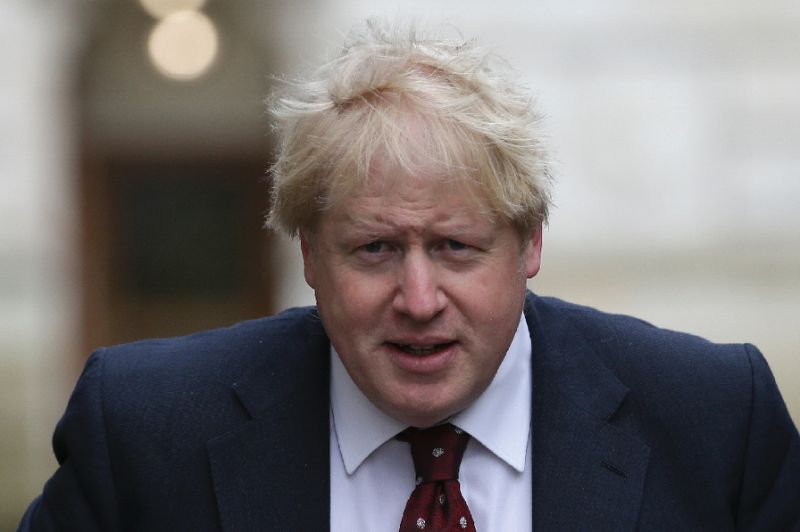
British Foreign Secretary Boris Johnson is to travel to Russia in the coming weeks for high-level political talks, his office said Saturday.
It will be the first time a British minister has been to Moscow for an official visit in more than five years and could signal a potential thaw in Anglo-Russian relations after years of antagonism.
A Foreign Office spokeswoman stressed that the visit was not a return to "business as usual", saying Britain's approach to Russia was "engage, but beware".
Relations with Russia soured after Britain sought to prosecute suspects in the killing of Kremlin critic and former spy Alexander Litvinenko, murdered by radiation poisoning in London in 2006.
Britain has also been one a fervent supporter of Western sanctions against Moscow over Russia's role in the Ukraine crisis.

















